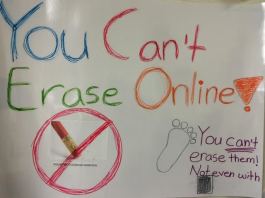Privacy is a big topic on this blog, and today, JULY 9, 2019, was an interesting day in the 21st Century privacy department.

It’s a significant day because just about every newspaper features an article about facial recognition software and how it may be misused by the United States Immigration and Customs Enforcement Department (ICE). This government agency uses the facial recognition software to go into state driver’s license databases and collect information about the faces associated with those licenses. This is accomplished without the permission of the people whose images they scan.
As a privacy-conscious person, I turn off facial recognition on Facebook, on my phone, and for my photos, but I never considered my driver’s license. I also did not think that researchers might be harvesting photos from social media, using them to test their facial recognition products.
Continue reading “7 Articles to Help You Educate Yourself About Facial Recognition”

 Personal Information
Personal Information
 It appears that Echo Dot records what children say, saves that personal information, and apparently, it’s still saved even after parents delete It. A group of child advocacy organizations has
It appears that Echo Dot records what children say, saves that personal information, and apparently, it’s still saved even after parents delete It. A group of child advocacy organizations has  Every day, it seems, we hear of another hack of credit cards or the theft of personal data from health records. It’s difficult to keep track of it all, much less protect passwords (are yours secure?), various accounts for home and work, personal information and so much more. Yet it’s not just hackers. Many legitimate companies collect and share personal data, and they do it without an individual’s consent. It seems like more and more companies are cavalier about the privacy of their customers.
Every day, it seems, we hear of another hack of credit cards or the theft of personal data from health records. It’s difficult to keep track of it all, much less protect passwords (are yours secure?), various accounts for home and work, personal information and so much more. Yet it’s not just hackers. Many legitimate companies collect and share personal data, and they do it without an individual’s consent. It seems like more and more companies are cavalier about the privacy of their customers. Various types of digital devices and toys are now a given in the lives of many children — even toddlers and preschoolers. From three and four years of age, many of their play activities include a vast array of toys and books that talk, beep, sing, cue activity, and play music. Even two-year-olds quickly learn how to use digital devices — after all they are generally adept at figuring out cause and effect and how to operate buttons.
Various types of digital devices and toys are now a given in the lives of many children — even toddlers and preschoolers. From three and four years of age, many of their play activities include a vast array of toys and books that talk, beep, sing, cue activity, and play music. Even two-year-olds quickly learn how to use digital devices — after all they are generally adept at figuring out cause and effect and how to operate buttons.
You must be logged in to post a comment.